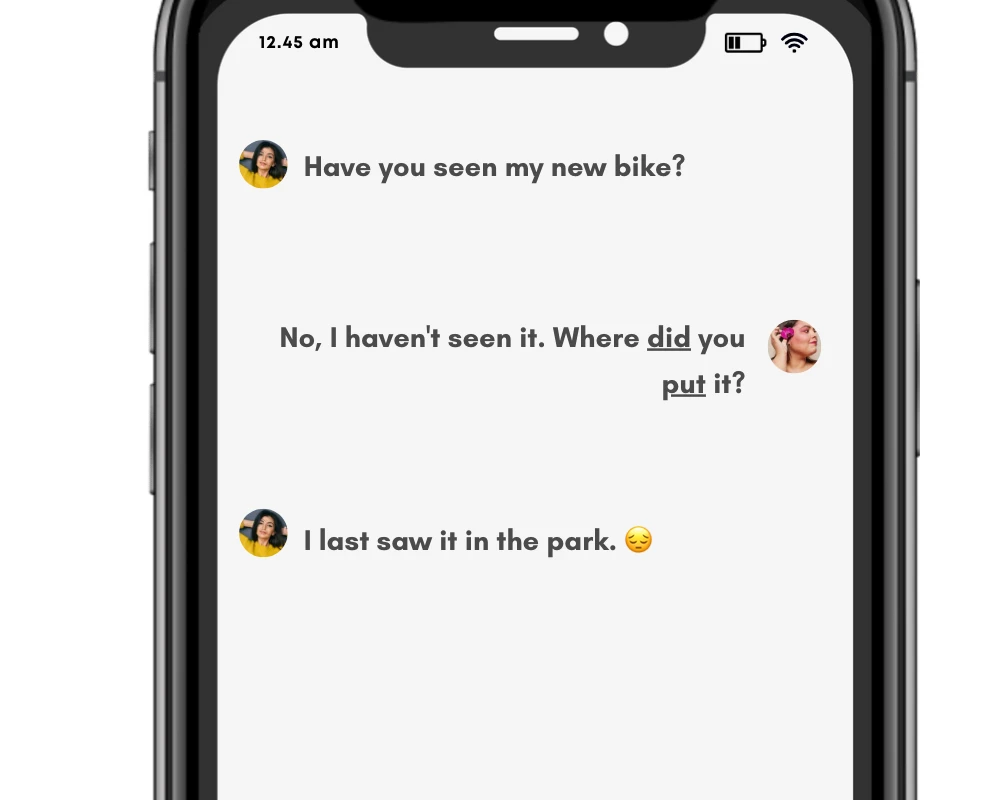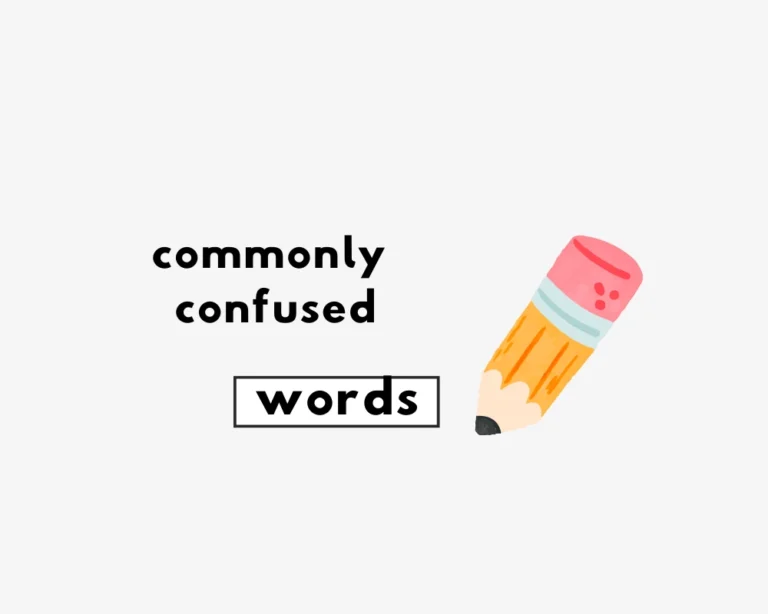
What’s the past tense of “see”?
To see, which is when we perceive something with our eyeballs, is an irregular verb with two past tense forms:
- Saw is the past tense, and seen is the past participle of see.
- A saw as a noun refers to a tool for cutting wood or other materials.
Forms of the irregular verb”see”
| present | past | future | |
| simple | I see | I saw | I will see |
| continuous | I am seeing | I was seeing | I will be seeing |
| perfect | I have seen | I had seen | I will have seen |
| perfect continuous | I have been seeing | I had been seeing | I will have been seeing |
See is irregular since neither of its past tenses end in –ed (e.g., saw and seen). Regular verbs end in –ed in their past verb forms, like walk/walked, talk/talked, and laugh/laughed.
To see is in the present tense: I would like to see some proof of this statement.
Saw is in the simple past tense: I looked out of the window but saw nothing.
Seen is the past participle form of see: I’ve never seen anything like this!
Here’s a helpful chart that illustrates irregular verbs like see, with different conjugations in the present, past and past participle.
| base verb | past tense | past participle |
| see | saw | seen |
| blow | blew | blown |
| draw | drew | drawn |
| eat | ate | eaten |
| drink | drank | drunk |
When to use “saw” vs. “seen”
Compare the way the past forms of ‘see’ appear in the two sentences:
Past tense: I saw the film yesterday.
Present perfect: I’ve seen this movie twice already, but if you want I’ll watch it again.
Both sentences refer to something that took place initially in the past, but only one clearly connects the past and present (namely, the present perfect tense). The simple past simply denotes a past action or event that took place and ended entirely at a past time.
The present perfect shows when a past action or event still relates to the present; such as previous experiences, whether personal or professional. To form these aspects of grammar, we use the past participle, seen, with auxiliary verbs; e.g., had in the past perfect, and have in the present perfect.
Sentence examples with “see” (present simple)
She looked for him but couldn’t see him in the crowd.
In the evening we went to see a movie.
If you watch carefully, you’ll see how it is done. (future tense)
I would like to see some proof of this statement.
If you look carefully you can just see our house from here.
Sentences with “saw” (simple past)
Though I saw this film I’d watch it again.
Fifty thousand people saw the match.
I looked out of the window but saw nothing.
I saw you standing there from across the room.
I saw that he looked upset by his reaction.
Sentences with “seen” (past participle)
She had never seen New York before, so I offered to show her around.
I’ve never seen anything like this!
She told him that she had seen me there last week.
This performance was very beautiful, like nothing I had ever seen before.
She had seen every movie in the series until this one.
Synonyms of see
- look
- watch
- observe
- view
Origin of the word see
From etymology online on see (v.):
Middle English sēn, from Old English seon “be or become aware of by means of the eye; look, behold;” also “perceive mentally, understand; experience; visit (a place); inspect” from Proto-Germanic *sehwanan.
Practice questions: tenses of “see”
| Questions | Answer options: |
| 1. True or false: “See” is a regular verb. | a. true b. false |
| 2. True or false: Regular verbs end in “ed” to show the past. | a. true b. false |
| 3. True or false: “See” looks the same in the present and past tense. | a. true b. false |
| 4. Choose the tense sentence is in: I’ve seen that movie. | a. past b. present perfect c. past perfect |
| 5. The sentence is in which tense: I saw you there last night. | a. present b. past c. future |
| 6. Choose the form of ‘see’ to complete the sentence: I ___ a fascinating article online earlier. | a. see b. will see c. saw |
Other commonly confused verb tenses
- What’s the past tense of spread?
- What’s the past tense of lead?
- What’s the past tense of choose?
- What’s the past tense of fly?
- What’s the past tense of lay?
- What’s the past tense of drive?
- What’s the past tense of draw?
Do you make verb tense, sense?
Sources
1. What Are Verb Tenses? (Past, Present and Future).https://grammarflex.com/what-are-verb-tenses-past-present-future/











